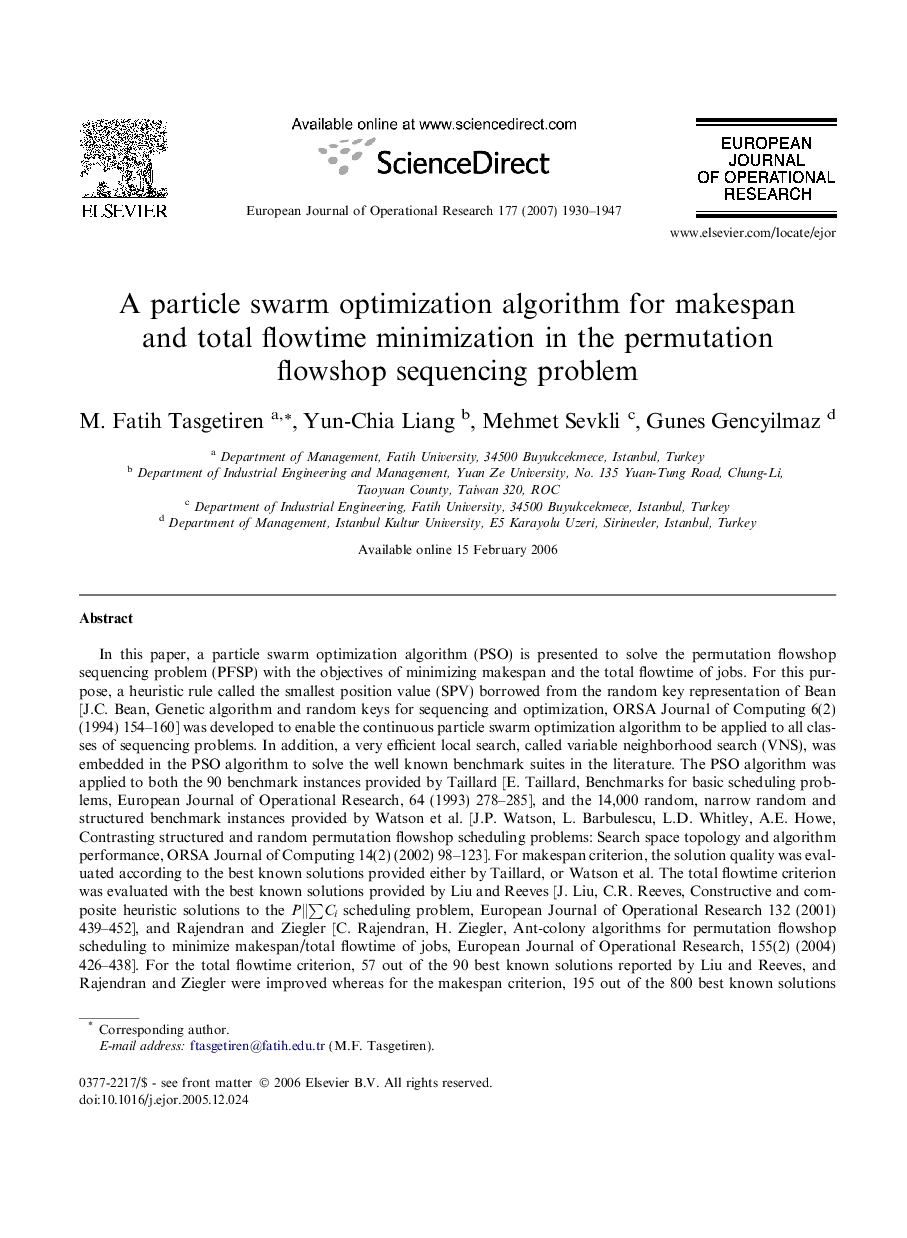| Article ID | Journal | Published Year | Pages | File Type |
|---|---|---|---|---|
| 483278 | European Journal of Operational Research | 2007 | 18 Pages |
In this paper, a particle swarm optimization algorithm (PSO) is presented to solve the permutation flowshop sequencing problem (PFSP) with the objectives of minimizing makespan and the total flowtime of jobs. For this purpose, a heuristic rule called the smallest position value (SPV) borrowed from the random key representation of Bean [J.C. Bean, Genetic algorithm and random keys for sequencing and optimization, ORSA Journal of Computing 6(2) (1994) 154–160] was developed to enable the continuous particle swarm optimization algorithm to be applied to all classes of sequencing problems. In addition, a very efficient local search, called variable neighborhood search (VNS), was embedded in the PSO algorithm to solve the well known benchmark suites in the literature. The PSO algorithm was applied to both the 90 benchmark instances provided by Taillard [E. Taillard, Benchmarks for basic scheduling problems, European Journal of Operational Research, 64 (1993) 278–285], and the 14,000 random, narrow random and structured benchmark instances provided by Watson et al. [J.P. Watson, L. Barbulescu, L.D. Whitley, A.E. Howe, Contrasting structured and random permutation flowshop scheduling problems: Search space topology and algorithm performance, ORSA Journal of Computing 14(2) (2002) 98–123]. For makespan criterion, the solution quality was evaluated according to the best known solutions provided either by Taillard, or Watson et al. The total flowtime criterion was evaluated with the best known solutions provided by Liu and Reeves [J. Liu, C.R. Reeves, Constructive and composite heuristic solutions to the P∥∑Ci scheduling problem, European Journal of Operational Research 132 (2001) 439–452], and Rajendran and Ziegler [C. Rajendran, H. Ziegler, Ant-colony algorithms for permutation flowshop scheduling to minimize makespan/total flowtime of jobs, European Journal of Operational Research, 155(2) (2004) 426–438]. For the total flowtime criterion, 57 out of the 90 best known solutions reported by Liu and Reeves, and Rajendran and Ziegler were improved whereas for the makespan criterion, 195 out of the 800 best known solutions for the random and narrow random problems reported by Watson et al. were improved by the VNS version of the PSO algorithm.
